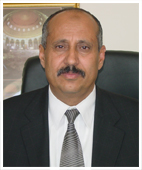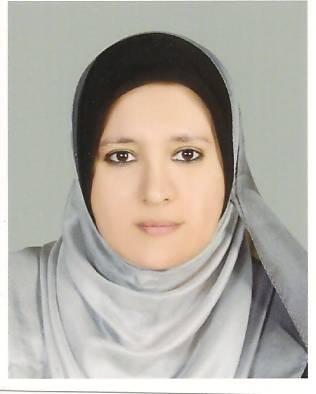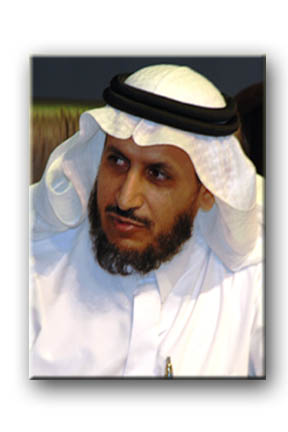
Sustainable Development: The New Quality Standard
Dr. Jostta Maclaughlin
Roosevelt University
USA

Classification of Universities, "A Thinking Vision"
Prof. Dawood Al-Hadaby
University of Science and Technology
Yemen

College of Art and Science initiatives in Accreditation: Challenges and lessons Learned
Dr. Siham Al-Qardawy
Former Dean of the College of Arts and Sciences,
University of Qatar
Qatar

Building a System of Internal Quality in Higher
Education Institutions
Prof. Awad Al-karni,
Dean of Quality
King Saud University
Saudi Arabia
Sustainable Development: The New Quality Standard for Higher Education
Abstract
Institutions of higher education have as their goal to be both high quality and competitive on a regional and global level. Achieving these outcomes requires that institutions examine the quality of colleges and universities from multiple perspectives, one of which is how they perform on the three principles of sustainable development – economic responsibilities, social responsibilities, and environmental responsibilities. Institutions can be successful on these principles through implementation of sustainable processes, procedures and outcomes that are fully integrated into the quality initiatives of colleges and universities. This presentation addresses what the resulting infrastructure might look like and how it can support sustainable institutions that must be both high quality and competitive?
BIO
Dr. Josetta McLaughlin is an Associate Professor of Management in the Heller College of Business Administration at Roosevelt University where she is a former School Director and Department Chair of the Department of Management and Marketing. She has presented and taught workshops in North America, Europe, Africa, China, and Taiwan on topics ranging from strategic management of higher education to process and outcomes benchmarking, student retention and sustainable development. Among other publications, she is co-author of The Information Mosaic: Strategic Decisionmaking for Colleges and Universities. She has been active in the International Academy of Management, the International Association of Business and Society, the Association for Institutional Research, the Consortia for Student Retention Data Exchange.
Classification of Universities, "A Thinking Vision"
Sort universities in the United States of America began in the early eighties, and then followed in the United Kingdom, where the publishing houses, this task in order to assist the Parents in the decision making process concerning their children's enrollment in the various disciplines and universities.
This was followed by one of the Chinese universities as an academic institution designed to arrange the system of universities in the world. Then it followed by a series of institutions in the country and global regions such as Europe, Africa, Asia and elsewhere.
Orbiter and the different systems to arrange the universities find that the criteria and indicators and weights can agree and disagree, you may find the same indicator, such as scientific research user as a criterion for all systems arrangement except that the weight given to it did not differ between systems, and this of course reflects the interests and priorities of those systems.
One of universities, for example, is located in the classification of the seventeenth, while Britain is in the order in more than two hundred in the system of Shanghai.
Unfortunately, the Arab region still has not spent the rest of the regions has also designed a system that reflected their realities and priorities of the beneficiaries of other systems, but not necessarily identical.
Been addressed in this paper is to rating systems major (American, British, Chinese) will also be addressed to the criticism and analysis of systems of order different access to see that the region (Arab Universities) to develop a ranking system built on the experiences of others in the world and the specifics of time and place and institutions in the region as it did the rest of the regions such as Europe, Africa, Asia, America and others.
College of Art and Science initiatives in Accreditation: Challenges and lessons Learned
Abstract
In Nov. 2003 Qatar University (QU) has initiated an ambitious academic reforming plan. Since then, College of Arts and Sciences (CAS) has been playing a significant role in implementing the objectives of QU reforming plan, particularly, because CAS is offering most of the core curriculum courses. As QU is seeking (SACS) accreditation, that requires particular academic standards for the core curriculum courses. CAS has been taken several steps to satisfy the SACS requirements; among those are international accreditation of several programs and bench marking the rest of the academic programs against some internationally recognized programs.
Programs accreditation, bench marking and reviewing was planned in advance. Indeed, our first strategic plan that has been initiated on 2006 included time lines, responsibilities and needed budgets for programs accreditation and bench marking.
Many of CAS programs have successfully achieved international accreditation. The Biomedical program has been accredited by The National Accrediting Agency for Clinical Laboratory Sciences (NAACLS) in 2008 and the Chemistry program has also been accredited by the Canadian Society for Chemistry (CSC) in 2009. Several programs are also preparing for accreditation, e.g. the Statistics Program is seeking the accreditation by Royal Society of Statistics and Mass Communication by ACEJMC (Accrediting Council on Education in Journalism and Mass Communication).
Because most of the Humanities and Languages Programs don’t have international accrediting agencies, CAS has been reviewing these programs in collaboration with some regional universities, e.g. the American University at Beirut (AUB).
Breife BIO
Dr. Siham Al-Qaradwai has had a long history with Qatar University since 1981 when she received her first degree B.Sc Chemistry with Honours from the Faculty of Science at Qatar University. On receiving her PhD in 1992 from University of Reading UK, Dr. S. Al-Qaradawi returned to QU in 1992 as Assistant Professor in Chemistry, a position which she held until 2004 when she promoted to associate prof.
Prior to her appointment as College of Arts and Sciences Dean in 2005, Dr. S. Al-Qaradawi served as Chair of Chemistry Department and Associate Dean for Student Affairs at CAS.
Dr. Al-Qaradawi’s personal and professional achievements are many and varied. In 2000, she was the recipient of QU-sponsored scholarship to conduct research at the University of Strathclyde in Glasgow, UK. Two years later, she worked at the Institute of Pharmazie University of Hamburg, Germany. In the summer of 2003, Dr. S. Al-Qaradawi won the DAAD scholarship (Deutscher Akademischer Austausch Dienst) under the German Academic Exchange Service to work at the Institut fuer Technische Chemie, Universitaet Hannover, Germany.
As CAS Dean, Dr. S. Al-Qaradawi oversaw 10 departments, 19 programs. She guided the College towards a number of key milestones: accreditation for the Chemistry Program in February 2009, and the Biomedical Sciences Program in April 2008. Additionally, her tenure produced the International Affairs Program, pharmacy program, the degree programs B.Sc. Environmental Science, and BA Social Work.
Dr. S. AlQaradawi is the author of 19 academic papers on organic chemistry, spectroscopy and photochemistry.
In 2010/2011 Dr. S. Al-Qaradawi received the prestigious William Fulbright Award as visiting Scholar at School of Pharmacy, Temple University, Pennsylvania, USA.
Up

